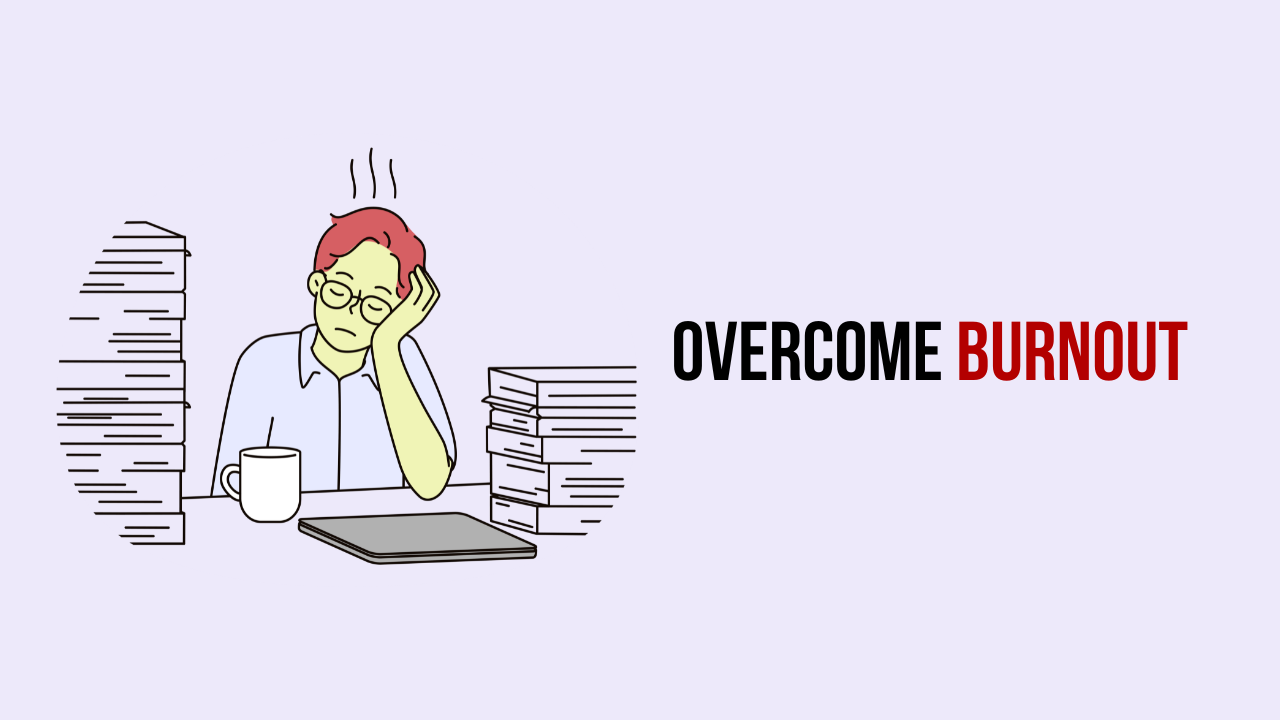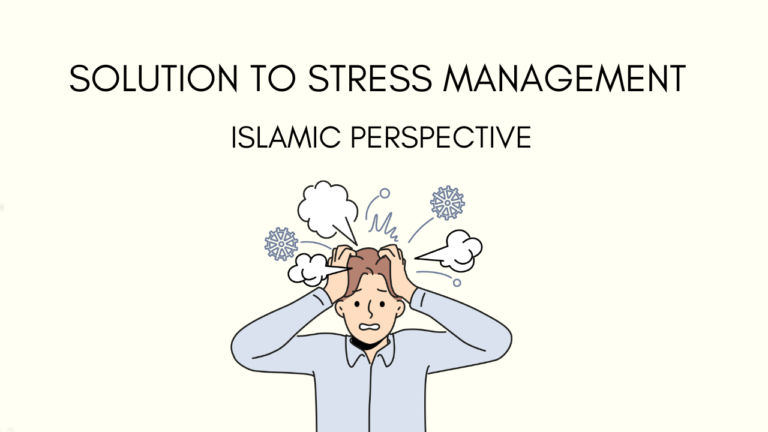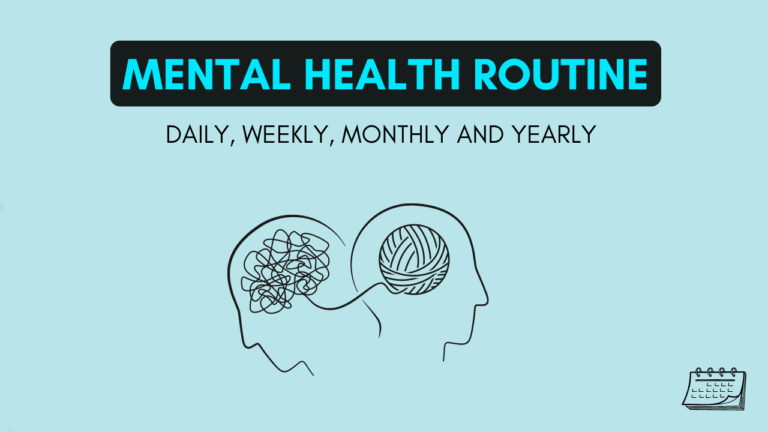Introduction
In today’s fast-paced world, burnout has become an all-too-common experience. Whether you’re a student, a professional, or even a stay-at-home parent, the demands of modern life can easily overwhelm you, leading to feelings of exhaustion, cynicism, and ineffectiveness. But what exactly is burnout? And more importantly, how can we overcome and prevent it?
In this blog, we’ll delve into the scientific understanding of burnout, explore its causes and signs, discuss the negative effects it has on our mental and physical health, and provide strategies to overcome it based on both science and Islamic teachings. Let’s get started!
Table of Contents
What is Burnout?

Burnout is a state of emotional, physical, and mental exhaustion caused by excessive and prolonged stress. It happens when you feel overwhelmed, emotionally drained, and unable to meet constant demands. As stress continues, you begin to lose the interest and motivation that once fueled your work or responsibilities.
According to the World Health Organization (WHO), burnout is classified as an occupational phenomenon but can occur in any aspect of life, including home responsibilities, caregiving, or studying.
Symptoms of Burnout:
- Emotional exhaustion: Feeling drained and overwhelmed most of the time.
- Cynicism and detachment: Losing enthusiasm, feeling detached from responsibilities.
- Reduced performance: Lacking energy and creativity, leading to underperformance.
- Physical symptoms: Frequent headaches, digestive issues, and sleep disturbances.
- Isolation: Withdrawing from social situations or even neglecting personal relationships.
The Science Behind Burnout
From a scientific perspective, burnout occurs due to chronic stress that affects the brain and body. Prolonged exposure to stress leads to a heightened release of cortisol, often referred to as the stress hormone. Over time, elevated cortisol levels affect various bodily systems, including:
- Cognitive function: High stress impairs focus, decision-making, and memory.
- Emotional regulation: Emotional resilience weakens, leading to mood swings and irritability.
- Immune system: Stress weakens the immune system, making one more prone to illness.
- Cardiovascular health: Long-term stress increases the risk of hypertension and heart disease.
Research by the American Psychological Association shows that burnout is associated with an increased risk of anxiety disorders, depression, and other health problems. Prolonged burnout can also lead to a complete emotional breakdown or chronic physical illness.
Islamic Perspective on Burnout and How to Prevent It
Islam teaches moderation in all aspects of life. Allah (SWT) says in the Qur’an:
“And thus We have made you a just community (Ummah Wasaṭan) that you will be witnesses over the people and the Messenger will be a witness over you…”
(Surah Al-Baqarah, 2:143)
This concept of being “just” or “moderate” encompasses our work, worship, and personal lives. Islam strongly emphasizes balance and avoiding extremes, which is a crucial element in preventing burnout. Let’s break down some key strategies:
1. Tawakkul (Trust in Allah)
Many times, burnout stems from overburdening oneself with responsibilities, fearing failure, or worrying about outcomes. Islam teaches the principle of Tawakkul—complete trust in Allah’s plans. Recognizing that Allah (SWT) is in control helps ease the pressure of constantly trying to control everything.
“And whoever relies upon Allah – then He is sufficient for him…”
(Surah At-Talaq, 65:3)
Tawakkul helps us understand that we do our best while leaving the rest in the hands of Allah. This mindset can reduce stress and ease feelings of burnout.
2. Salah (Prayer) and Dhikr (Remembrance of Allah)
Taking time to pause and engage in Salah or Dhikr is a powerful tool to combat burnout. Salah not only connects us spiritually but also provides structured breaks throughout the day that allow for physical rest and mental calmness.
Allah (SWT) says:
“Verily, in the remembrance of Allah do hearts find rest.”
(Surah Ar-Ra’d, 13:28)
By maintaining regular prayers and consistently engaging in Dhikr, one can achieve a calm and centered mind, reducing the effects of stress and preventing burnout.
3. Balance Between Work and Worship
Islam encourages a balanced lifestyle where worldly obligations and spiritual duties are harmonized. Overworking oneself to the point of exhaustion contradicts the Islamic principle of moderation.
The Prophet Muhammad (PBUH) said:
“Verily, your body has a right over you, your eyes have a right over you, and your wife has a right over you.”
(Sahih Bukhari)
This Hadith emphasizes that taking care of oneself and one’s family is as important as spiritual pursuits. Finding time for relaxation, sleep, and family life is essential in preventing burnout.
Causes of Burnout
Burnout doesn’t just occur due to heavy workloads—it can arise from a combination of factors, including:
- Excessive workloads: Trying to meet unrealistic expectations and deadlines.
- Lack of control: Feeling powerless in decision-making or workflow.
- Inadequate rewards: Little recognition for hard work or efforts.
- Workplace dynamics: Conflicts with coworkers, feeling isolated.
- Value disconnect: Feeling that personal values don’t align with work.
- Monotony or boredom: Doing the same tasks without any excitement or variety.
Negative Effects of Burnout

The negative effects of burnout extend beyond the individual—it impacts families, organizations, and communities. Here are a few areas affected:
- Physical Health: Chronic stress leads to heart disease, obesity, diabetes, and other physical conditions.
- Mental Health: Anxiety, depression, and a reduced ability to cope with daily life.
- Relationships: Strain on family, friends, and colleagues due to mood swings and isolation.
- Work Productivity: Low motivation, creativity, and productivity, leading to missed deadlines and mistakes.
- Spiritual Health: When burnout sets in, spiritual practices like prayer and worship may be neglected, leading to feelings of disconnection from Allah.
How to Overcome Burnout
Overcoming burnout requires both short-term strategies and long-term changes in lifestyle and mindset.
1. Physical Self-Care
Taking care of the body is essential to prevent burnout. This includes:
- Regular exercise: Exercise helps to lower cortisol levels, reducing stress.
- Healthy diet: Proper nutrition supports the body in handling stress.
- Adequate sleep: Prioritize sleep to allow your brain and body to recover.
2. Seek Social Support
Isolation can make burnout worse. Reach out to family, friends, or colleagues for emotional support. Even Prophet Muhammad (PBUH) used to consult with his companions and family when overwhelmed by a situation.
3. Set Realistic Expectations
Learn to say “no” and delegate responsibilities where possible. In Islam, we are taught to be moderate and not take on more than we can handle:
“Allah does not burden a soul beyond that it can bear…”
(Surah Al-Baqarah, 2:286)
By setting healthy boundaries, we can protect ourselves from exhaustion.
4. Engage in Meaningful Activities
Find activities that you enjoy and bring purpose to your life. Whether it’s a hobby, volunteering, or spending time with loved ones, these activities can renew your energy and help you regain enthusiasm for your responsibilities.
Conclusion
Burnout is a serious condition with far-reaching consequences, but it is also preventable and treatable. By understanding the causes of burnout, recognizing the warning signs, and implementing effective strategies—both from scientific research and Islamic teachings—we can create a more balanced, peaceful, and productive life.
Maintaining moderation in work, personal life, and worship is the key to avoiding burnout. Trusting in Allah (SWT), performing regular Salah, practicing Dhikr, and taking care of our physical and emotional well-being can help us overcome the pressures of life, allowing us to thrive instead of merely survive.
Remember, taking care of yourself is not selfish; it is necessary to fulfill your responsibilities effectively and live a life that is pleasing to Allah.




